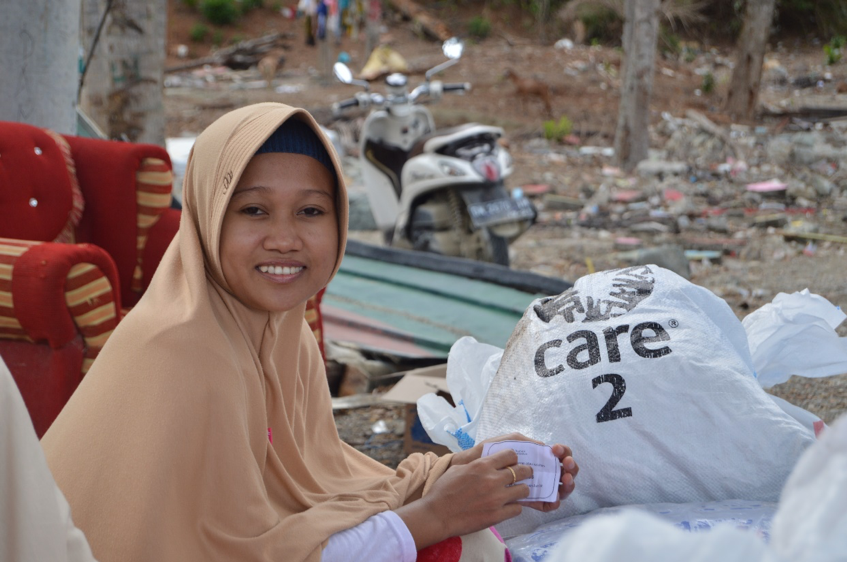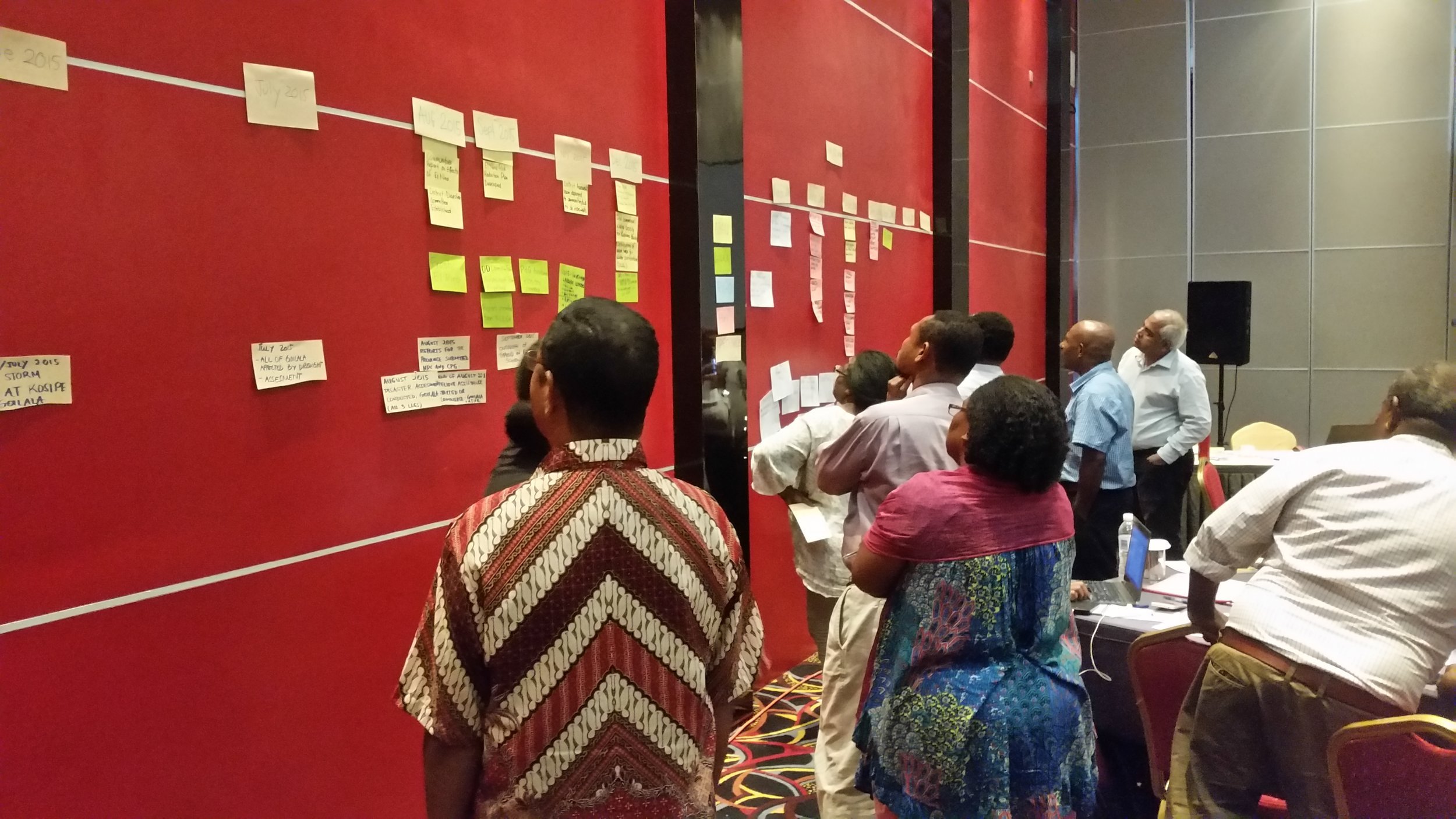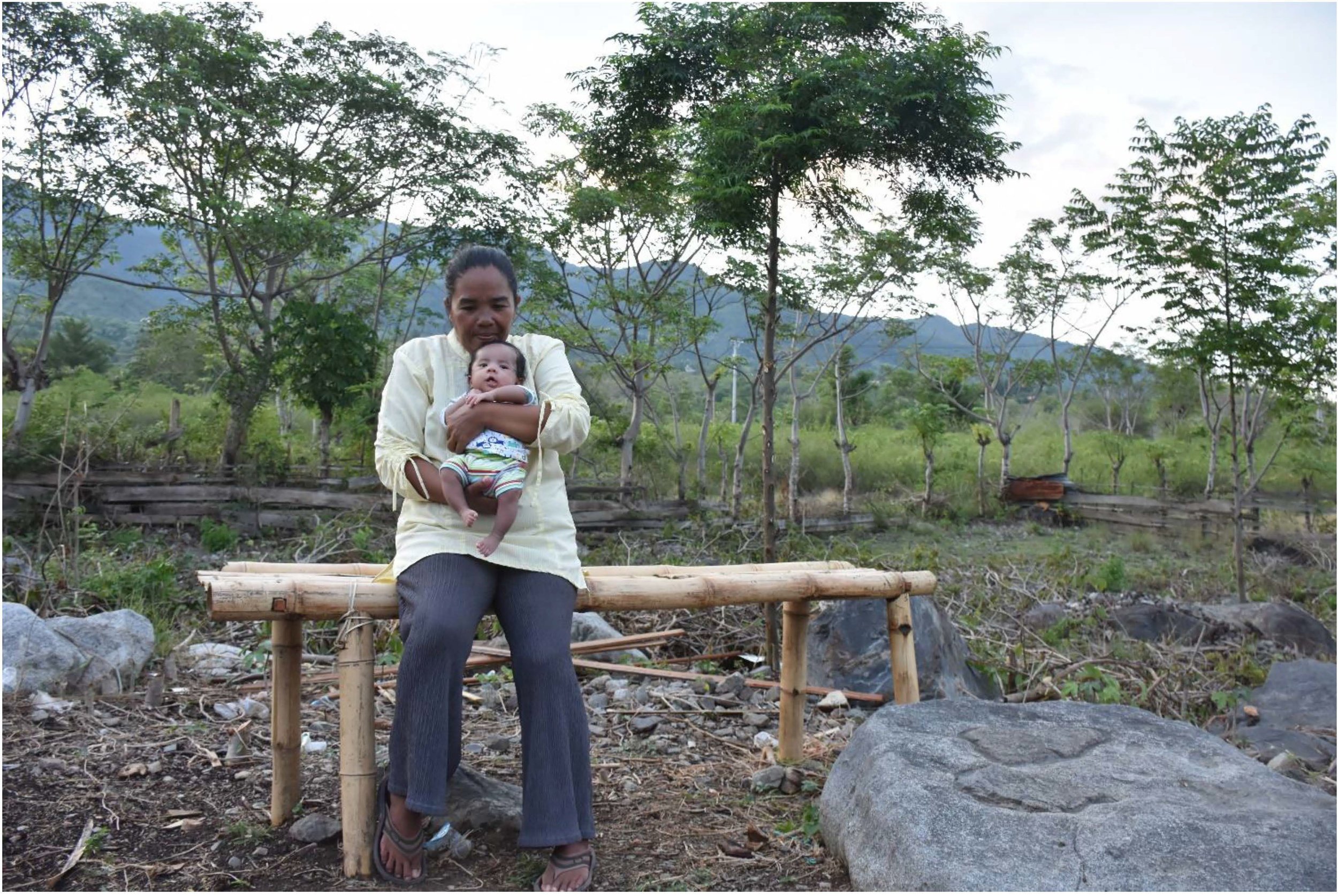Emergency to temporary shelter in Tonga following TC Gita
Tropical Cyclone Gita (TC Gita) struck Tonga on 12 February 2018, affecting an estimated 80,000 men, women, boys and girls (about 70 per cent of the entire population). Many people lost their homes and required emergency shelter. AHP partner CARE Australia worked with local partners to provide emergency shelter and then transition communities into stronger housing options.
Women Friendly Spaces - overcoming the suspicion - Bangladesh
Women Friendly Spaces can provide women with much needed respite and support in humanitarian situations. However, community attitudes and suspicion must be sometimes overcome before some women can safely join.
In Cox’s Bazar, Bangladesh, CARE has been working to overcome some of these barriers for Rohingya refugees, ensuring the women have somewhere to gather, seek information and find refuge among each other.
Resilience in the face of famine - South Sudan
Between March 2017 and Oct 2017, AHP partner World Vision Australia supported communities affected by famine and conflict in South Sudan with humanitarian assistance and livelihoods support - working to build resilience, income and food security.
“I want to help other women to be stronger” - Indonesia
Women and girls face unique challenges following a disaster. An Indonesian volunteer shares her observations following the 2018 earthquake and tsunami in Sulawesi.
Supporting the vulnerable in the wake of TC Gita - Tonga
When Tropical Cyclone Gita hit Tonga in 2018, three organisations came together to get emergency assistance to the nation’s most vulnerable.
Disaster READY: NGO self-assessment in the Solomon Islands
Disaster READY partners in the Solomon Islands are looking to improve gender and social inclusion capacity within their own organisations so that that they can better support the local organisations and communities they are working with.
Disaster READY: Provincial-level preparedness in Papua New Guinea
Disaster READY PNG partner ChildFund, through the Plan International consortium, supported the Central Province Government to develop an Emergency Contingency Plan to better prepare for future disasters.
Disaster READY: People living with a disability represented on community disaster management committees - Timor-Leste
With support from Disaster READY, a Suco (village) Disaster Management Committee is revitalised with diverse and inclusive representation.
Localising a humanitarian response in a fragile context: the PNG church partners’ response to the Highlands Earthquake
The CAN DO network shares the important role played by Papua New Guinea churches is response to the 2018 Highlands Earthquake. With a presence in many of the affected communities, the churches came together and played a critical and central role in the earthquake response efforts - demonstrating the importance and value of localised humanitarian responses.
Disaster READY: Our community is stronger when we include everyone - Vanuatu
Disaster READY Vanuatu spent 2018, the program’s foundation year, forming and cementing partnerships across the nation. Read about their progress here, including how a multi-stakeholder tsunami drill was soon put into action.
Disaster READY: Preparing for drought - Timor-Leste
Timor-Leste is prone to severe droughts, posing health, food security and livelihood risks to much of the population. AHP’s Timor-Leste Disaster READY program works with communities, government and other relevant stakeholders to prepare for drought.
Disaster READY: Local Leadership in Fiji
The Fiji Disaster READY consortia found themselves responding to two consecutive tropical cyclones in the early stages of the Disaster READY program. They rallied together to coordinate their response, while also successfully securing funding from the START network.
Hygiene and menstrual health: supporting female refugees - Bangladesh
Ensuring women can maintain their mobility, dignity and menstrual health is a key focus of this AHP-supported response for Rohingya refugees in Cox’s Bazar, Bangladesh.
The challenges of childbirth in an IDP camp - Indonesia
“Eight days after the earthquake, Rahmat was born. I could not breastfeed Rahmat, I was overwhelmed by our situation.”
Clean water the first of many steps to recovery - Indonesia
Two mothers explain the challenges they face in the aftermath of the September 18 earthquake and tsunami in Sulawesi, Indonesia
Earthquake response - Papua New Guinea
According to Anna Bryan, CARE's Program Director in PNG, the February 28 2018 highlands earthquake in Papua New Guinea was a disaster ‘ likes of which we haven't seen for decades’.
Cash for Work program helps Ambae evacuees support themselves - Vanuatu
“We are lucky to have running water, but we also need soap to keep us clean and healthy. We have not been able to afford that. During Save the Children’s Cash for Work program, we worked together with our host households to establish communal gardens next to our settlement site.”
Stitching new beginnings: Fatima shares her story - Jordan
Fatima wasn’t always a refugee. Five years after being forced to leave the life she once knew, Fatima talks about her memories of those left behind in Syria and a future with limited work options in Jordan’s Za’atari refugee camp.
BioFil Toilets in Cox’s Bazar - Bangladesh
After four years of field trials in Bangladesh, Oxfam adopted the ingenious BioFil Toilet for the Rohingya refugee response.
Under looming dark clouds, Rohingya children await a second chance
In 2017, Save the Children received $3 million through the AHP to respond to the Myanmar-Bangladesh crisis.





















